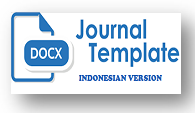Implementasi Sistem Informasi Administrasi Prodi PTIK Universitas Bung Hatta
DOI:
https://doi.org/10.29240/arcitech.v4i1.11032Keywords:
Administration, Waterfall Method, PHP, MySQLAbstract
Downloads
References
Beatrix, J., Amarulla, I., & Aryani, L. (2023). Perancangan Sistem Informasi Akademik Pada SD Xaverius 1 Kota Jambi Berbasis Web. 3, 405–416.
Enstayn, G., Kustanto, A., & Chernovita, H. P. (2021). Perancangan Sistem Informasi Manajemen Berbasis Web Studi Kasus : Pt Unicorn Intertranz Web-Based Management Information System Design Case Study : Pt Unicorn Intertranz. 8(4). https://doi.org/10.25126/jtiik.202184849
Fathah, A. (2021). Perancangan Sistem Informasi Manajemen Aset dengan Metode Waterfall di SMK Al-Muawanah Tasikmalaya. 02(02), 86–101.
Hafidz, H., & Nababan, A. (2023). Jurnal Pendidikan Sains dan Komputer Perancangan Sistem Manajemen Informasi Surat Menyurat Berbasis Web pada Kantor BDK Medan Jurnal Pendidikan Sains dan Komputer. 3(2), 188–197.
Ichsani, Y., & Aripiyanto, S. (2024). Analisis Perancangan Sistem Informasi Portal Desa Berbasis Web dengan Menggunakan Metode Kano dan OpenSID. 14(1), 14–22.
Irwandi, A., Sari, W., & Ulfah, U. (2015). Analisis dan perancangan sistem informasi nilai siswa (studi kasus: sdn 2 anjir serapat tengah). 2(1), 1–5.
Khairi, A., Tirtana, M. M. A., Ambiyar, & Verawardina, U. (2023). Implementasi Platform E-Training Entrepreneur untuk Mahasiswa PTIK. Indonesian Journal of Computer Science, 12(6), 4158–4170. https://doi.org/10.33022/ijcs.v12i6.3563
Kusuma, D. A., Valentino, V. H., & Prasetya, R. (2023). Perancangan Sistem Informasi Manajemen Penerimaan Pesanan di PT Aulia Jaya Corp Berbasis Java. 7(2), 53–58.
Marwan, E. (2022). Sistem Informasi Manajemen Pendidikan Di Sekolah. Al-Ihda’ : Jurnal Pendidikan Dan Pemikiran, 13(1), 127–133. https://doi.org/10.55558/alihda.v13i1.12
Najoan, A. R. F., & Setiyawati, N. (2023). Pembangunan Sistem Informasi Administrasi Desa Berbasis Web Dengan Menggunakan Framework Laravel. Jurnal Pendidikan Teknologi Informasi (JUKANTI), 6(2), 212–221. https://doi.org/10.37792/jukanti.v6i2.984
Purwaningtias, D., & Risdiansyah, D. (2018). Sistem Informasi Penawaran Proyek Pembangunan Pada Cv. Nur Fiqri Pontianak. Jurnal Teknologi Dan Manajemen Informatika, 4(2). https://doi.org/10.26905/jtmi.v4i2.2185
Rizki, U., Amaliah, K., & Murtiningseh, M. (2022). Pembangunan Sistem Informasi Praktik Pengalaman Lapangan Pendidikan Berbasis Web. Instink: Inovasi Pendidikan, Teknologi Informasi Dan Komputer, 1(1), 36–43. https://doi.org/10.30599/instink.v1i1.1501
Sonatha, Y. (2020). Pengembangan Sistem Informasi Taman Pendidikan Al Qur’an Menggunakan Framework Java Spring. JATISI (Jurnal Teknik Informatika Dan Sistem Informasi), 7(1), 81–90. https://doi.org/10.35957/jatisi.v7i1.184
Sulistiyarini, D., & Sabirin, F. (2018). Analisis Perancangan Sistem Informasi Administrasi Program Studi Pendidikan Teknologi Informasi dan Komunikasi. Jurnal Penelitian Dan Pengembangan Sains Dan Humaniora, 2(1), 22. https://doi.org/10.23887/jppsh.v2i1.14006
Syabrullah, A., Fibrian, I. D., & Syaikhuddin, M. M. (2023). Perancangan Sistem Informasi Manajemen Risiko Rumah Sakit Berbasis Website. 8(3).
Wahyudin, I., Natsir, F., & Vandini, I. (2022). Perancangan aplikasi sistem informasi penjualan tahu pada pabrik tahu ug pariangan berbasis java. 3(2), 62–72.
Downloads
Published
How to Cite
Issue
Section
Citation Check
License
Authors who publish with Arcitech: Journal of Computer science and Artificial Intelligence agree to the following terms:
- Authors retain copyright and grant the journal right of first publication with the work simultaneously licensed under a Creative Commons Attribution-NonCommercial-ShareAlike 4.0 International License (CC BY-NC-SA 4.0) that allows others to share the work with an acknowledgment of the work's authorship and initial publication in this journal.
- Authors are able to enter into separate, additional contractual arrangements for the non-exclusive distribution of the journal's published version of the work (e.g., post it to an institutional repository or publish it in a book), with an acknowledgment of its initial publication in this journal.
- Authors are permitted and encouraged to post their work online (e.g., in institutional repositories or on their website) prior to and during the submission process, as it can lead to productive exchanges, as well as earlier and greater citation of published work (See The Effect of Open Access).













